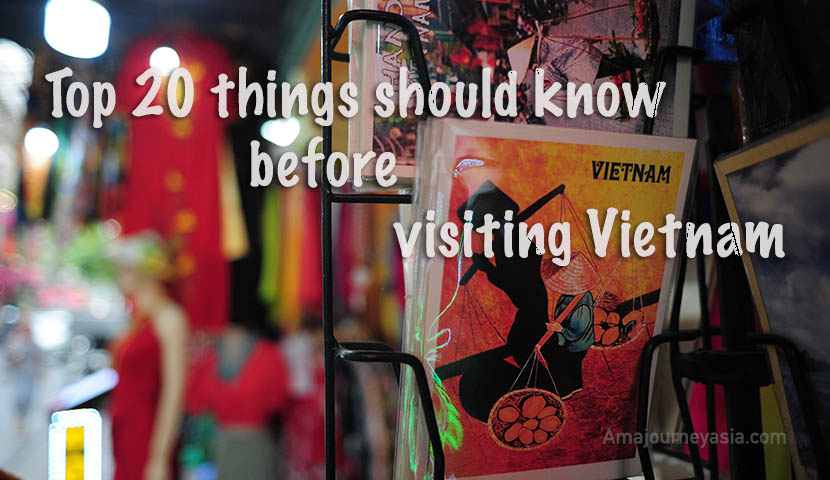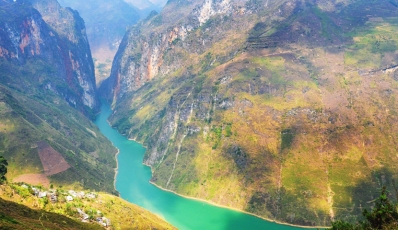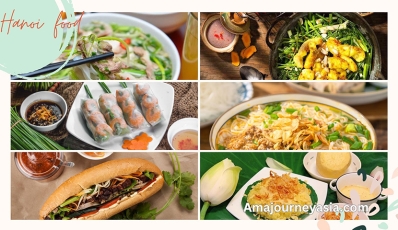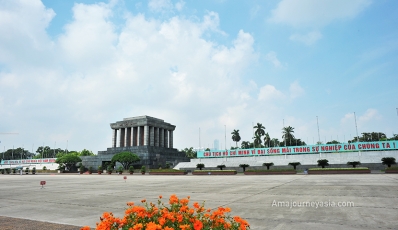Table of content
2. Choose the best time to visit Vietnam
3. Climate in Vietnam
4. Water from the tap
5. Local currency
6. Vietnam Banking
7. Vietnam electric plugs
8. Vietnam Gastronomy
9. Cell phones and internet in Vietnam
10. First arrival in Hanoi capital or Ho Chi Minh city?
11. Communication
12. Transportation in Vietnam
13. Vaccinations before visiting Vietnam?
14. Tip or not for a trip to Vietnam.
15. Traffic in major cities
16. Reliable airlines in Vietnam
17. Book Vietnam package tours with reliable tour operator
18. Keep an eye on your belongings
19. is prostitution legal or illegal in Vietnam?
20. Is it safe for traveling in Vietnam?
*****
1. Prepare Visa and passport
Before traveling to Vietnam, it is important to prepare your visa and passport ahead of time. Most visitors to Vietnam require a visa, which can be obtained online or through a Vietnamese embassy or consulate. Another convenient way is Vietnam evisa, you can make evisa via official website of Vietnam immigration department.
The visa application process typically requires a valid passport, a passport-sized photo, and payment of a fee. It is important to ensure that your passport is valid for at least six months beyond the end of your intended stay in Vietnam.
It is important to check the specific visa and passport requirements for your country of origin, as these can vary depending on your nationality. By preparing your visa and passport ahead of time, you can avoid any last-minute issues and ensure a smooth and hassle-free trip to Vietnam.
>>> Information about Vietnam Evisa
2. Choose the best time to visit Vietnam
Vietnam is a beautiful country that offers diverse landscapes and experiences throughout the year. The best time to visit Vietnam varies depending on the region you plan to explore and your personal preferences.
The most popular time to visit Vietnam is during the dry season, which runs from November to April, when the temperatures are cooler and rainfall is low. This time is perfect for exploring Vietnam.
Meanwhile, during summer from May to August is the perfect time for beach breach in some places in Vietnam.
From September to October is a great time for northern discovery with golden rice field terrace in the crop harvest.
This is when you can experience lush green landscapes and enjoy the natural beauty of Vietnam's rivers and waterfalls. Ultimately, the best time to visit Vietnam depends on your interests and priorities, so it is important to do your research and plan accordingly.
3. Climate in Vietnam
Vietnam is a country located in Southeast Asia, with a tropical monsoon climate that is characterized by high humidity and precipitation throughout the year. The country experiences four distinct seasons in northern Vietnam. And two seasons in southern Vietnam: a rainy season and a dry season.
Four seasons in the north are: Spring, Summer, Winter, Autumn.
In the summer, the average temperature across the country is 32°C, with Hanoi, Hue, and Ho Chi Minh City experiencing temperatures of 30°C, 32°C, and 34°C respectively.
During the winter months of December and January, the northern region typically experiences the lowest temperatures. In some mountainous areas, such as Sapa and Hoang Lien Son, the temperature can drop to 0°C, with occasional sleet or snowfall.
The rainy season typically lasts from May to October, with the highest rainfall occurring in August and September. The dry season, on the other hand, lasts from November to April, with temperatures ranging from 20 to 30 degrees Celsius. The central regions of Vietnam are frequently affected by typhoons and tropical storms during the rainy season.
Overall, Vietnam's climate is hot and humid, with average temperatures ranging from 22 to 27 degrees Celsius, making it a popular tourist destination for those seeking warm weather and beautiful beaches.
4. Water from the tap
Do not drink the water from the tap, once you are traveling from Vietnam. You need to know that you can not drink water from the tap as it is not pure drinking water. It is just for daily use, washing, showering or you have to boil it before drinking.
This is not only the rule in Vietnam but also in other countries in southeast Asia.
5. Local currency
In Vietnam, the local currency is Vietnam Dong ( VND) and there is only one picture of uncle Ho in all kinds of notes.
For the currency exchange rate, it is an easy way to remember 1 USD is about 23 000 VND. You can check it exactly at the official website of Vietcombank:
There are many 0 digits at the notes so make sure you carefully check the denomination of the bill when paying the bill.
The currency notes are from 1000 VND, 2000 VND, 5000 VND, 10 000 VND, 20 000 VND, 50 000 VND, 100 000 VND, 200 000 VND, 500 000 VND.

Local Vietnam currency - Vietnam Dong
6. Vietnam Banking
The banking system in Vietnam was regulated by the State Bank of Vietnam, which is the central bank of the country. The State Bank of Vietnam is responsible for issuing and implementing monetary policies, supervising and regulating banks, and managing the payment system.
There are many banks operating in Vietnam, both domestic and foreign. Some of the largest domestic banks include Vietcombank, VietinBank, BIDV, and Agribank. Foreign banks operating in Vietnam include HSBC, Standard Chartered, Citibank, and ANZ.
Working time from 8.00 - 11.30 and from 1.00 pm to 4.00 pm. During the weekend, public holidays the banks are closed.
It is easy to bank transfer to Vietnam. However, bank transfer out of Vietnam will be another story.
In Vietnam, there are many ATM machines in almost all cities, tourist areas. Most restaurants, hotels, and shops accept payment by cards.
7. Vietnam electric plugs

Electric plugs in Vietnam
In Vietnam, the standard voltage is 220V, and the frequency is 50Hz. The country uses two types of electrical plugs: Type A and Type C.
Type A plugs are similar to plugs used in the United States and Japan, with two flat parallel pins. Type C plugs have two round pins and are commonly used in Europe and many other parts of the world.
If you are traveling to Vietnam from a country that uses a different type of plug, you may need to bring a plug adapter. Many hotels in Vietnam may also provide adapters upon request.
8. Vietnam Gastronomy
Vietnamese gastronomy is renowned for its diversity, balance, and freshness. It incorporates a variety of flavors and textures, including sweet, sour, salty, and spicy, with an emphasis on using fresh herbs and vegetables.
Vietnamese cuisine is influenced by the country's geography and climate, with many coastal dishes featuring seafood, and many dishes in the north featuring rice and noodles. Some of the most popular Vietnamese dishes include pho (a noodle soup with beef or chicken broth), banh mi (a sandwich with meat, vegetables, and a baguette), and bun cha (grilled pork with noodles and herbs).
Vietnamese cuisine is also known for its street food culture, with vendors selling a wide range of dishes on the streets and in markets. The cuisine has gained international recognition and popularity in recent years, with Vietnamese restaurants and chefs receiving numerous accolades and awards.
9. Cell phones and internet in Vietnam
Tourists can easily use their cell phones during their visits to Vietnam. They can use roaming services but it is not recommended. It is better to use an App such as Whatsapp to keep in touch when they have wifi internet or it is easier to buy a SIM card 4 G that costs around 12 - 15 USD will be enough data internet for their Vietnam trip.
There are some network providers such as Mobilefone, Viettel, Vinaphone, Vietnammobile.
Unlike other countries, the Internet in Vietnam is really convenient, fast and everywhere from big cities to small villages. In hotels and restaurants, cafe shops, wifi internet is free to use.
10. First arrival in Hanoi capital or Ho Chi Minh city?
Whether you arrive in Hanoi or Ho Chi Minh City (also known as Saigon) first will largely depend on your travel plans and your flight schedule. Both cities have their own unique charm and offer different experiences.
Hanoi, located in the north of Vietnam, is the country's capital and is known for its rich history, ancient architecture, and vibrant street life. It's a great starting point for exploring the natural beauty of northern Vietnam, including the stunning Halong Bay, charming Ninh Binh, beautiful sapa or spectacular Ha Giang.
Ho Chi Minh City, located in the south of Vietnam, is the country's largest city and a bustling hub of commerce and culture. It offers a vibrant nightlife scene, world-class museums and galleries, and access to the Mekong Delta and nearby beach destinations.
Ultimately, it's up to your personal preference and travel plans. If you're interested in exploring the northern regions of Vietnam first, it may make more sense to start in Hanoi. However, if you find that your flight schedule is better if you arrive in Ho Chi Minh city then Ho Chi Minh City may be a more convenient starting point.

A florist vendor in Hanoi city
11. Communication
Although some locals may know a few English phrases, it's not something you can entirely rely on. Fortunately, with translation apps readily available on mobile phones, communication has become somewhat easier.
Vietnamese language uses six tonal signs, resulting in many words sounding similar but conveying different meanings. Hiring a tour guide, which typically costs around $35 per day, can make your trip significantly more manageable.
In Vietnamese culture, public displays of affection such as holding hands and kissing are generally considered to be private expressions of affection that should not be displayed openly in public areas. While it is not illegal to engage in these activities, it is not considered socially acceptable behavior.
12. Transportation in Vietnam
Vietnam has a variety of transportation options to choose from depending on your budget and preference. Here are some common modes of transportation in Vietnam that travelers could use for their most convenient:
Motorbikes/Scooters: Motorbikes or scooters are a popular way of getting around in Vietnam. They are affordable, easy to rent, and can be found everywhere. However, riding a motorbike in Vietnam can be challenging due to the chaotic traffic and lack of road safety, so this is really to be considered.
Taxis/Grab:Taxis are widely available in Vietnam, especially in big cities like Hanoi and Ho Chi Minh City. Grab, a ride-hailing app similar to Uber, is also very popular in Vietnam. It offers various services from cars to motorbikes, and the prices are reasonable.
Buses:Buses are a cheap and convenient way to move within a city or traveling between cities in Vietnam. They are available in different sizes, from large air-conditioned buses to smaller local buses. However, buses can be slow and uncomfortable, especially on long journeys.
Trains:Trains are a comfortable and scenic way to travel in Vietnam, especially for long distances. Vietnam has a good railway network connecting major cities and tourist destinations, and the prices are reasonable. However, trains can be slower than buses and flights, and the schedules may not be very flexible for your trip.

Train on Long Bien bridge
Flights: Domestic flights are a fast and convenient way to travel long distances in Vietnam. The country has several airlines offering domestic flights at affordable prices. However, the airports can be busy and the security checks can take a long time, so it is important to arrive earlier.
Private car: It is for tourists who would like to have transportation to discover Vietnam on their own way. It is the most convenient for a medium distance or traveling within 200 - 300 km/day.
13. Vaccinations before visiting Vietnam?
If your travel plans in Vietnam during the hot and humid season include mountainous and remote areas, it is advisable to get vaccinated against malaria. However, if you're only visiting popular tourist destinations, we consider it unnecessary.
For Covid 19 vaccination, Vietnam has lifted this rule. So tourists could easily travel to Vietnam without any vaccination certificates. However, we still recommend clients should have vaccination to protect themselves from the disease.
14. Tip or not for a trip to Vietnam.
In Vietnam, tipping is not mandatory, but it is appreciated in certain situations. In restaurants, it is common to round up the bill to the nearest dong or leave a small amount of money as a tip, especially if the service was good.
Similarly, you can tip a small amount to taxi drivers, hotel staff. If you are using a tour package with driver and tour guide, we suggest you tip them a small amount about 10 - 15 USD/day for tour guide and less for driver. This is as a gesture of appreciation for their services.
15. Traffic in major cities
Traffic in Vietnam can be quite chaotic and busy, especially in major cities like Hanoi and Ho Chi Minh City. Motorbikes are a popular mode of transportation, and you'll see them everywhere on the roads, often weaving through traffic and riding on the sidewalks. Cars and buses are also common, but they tend to move more slowly due to the high volume of motorbikes.
In general, traffic in Vietnam can be quite intimidating for visitors, as there are few traffic lights and drivers tend to ignore lanes and traffic signs. Honking is a common way for drivers to sign or let others know that they are coming , and you'll hear it frequently on the roads. It's important to exercise caution when crossing the street, and to look both ways even when you have the right of way.
That being said, it's also worth noting that many Vietnamese people are used to the traffic and are skilled at navigating it safely. If you're uncomfortable with the idea of driving or riding a motorbike in Vietnam, there are other options for transportation such as taxis, buses, and private drivers.
16. Reliable airlines in Vietnam
There are several reliable airlines in Vietnam that you can choose from:
Vietnam Airlines: This is the flag carrier of Vietnam and one of the largest airlines in the country. It has a good safety record and offers a wide range of domestic and international flights.
Vietjet Air: This is a low-cost carrier in Vietnam that has been growing in popularity in recent years. It also has a good safety record and offers affordable flights to many destinations within Vietnam and throughout Asia. however, for domestic flights. sometimes delay will happen
Overall, all these airlines have good safety records and offer reliable service. However, it's always a good idea to check reviews and compare prices before booking your flight to ensure you get the best deal.
17. Book Vietnam package tours with reliable tour operator
Before visiting Vietnam, it's crucial to research your trip beforehand, even if you plan to buy tickets after arriving. One helpful resource is Trip Advisor, where experienced travelers share their insights about Vietnam. By doing some preliminary reading, you can avoid unreliable tour agencies or poorly managed accommodations.
Enlisting the services of a reliable local tour operator can save you both time and money. They have local expertise, are easy to contact, and can assist with any issues that may arise with local suppliers. In case of security concerns, they can be particularly helpful. Although there may be a small service fee, the peace of mind that comes with knowing things are being taken care of properly makes it a worthwhile investment.
18. Keep an eye on your belongings
Although Vietnam is a safe country, sometimes pickpocketing happens and tourists have to watch their belongings. Especially when they have sightseeing during the day. Keep a close eye on your day pack and consider carrying it in front of you. Be mindful of your belongings when taking photographs and avoid leaving your phone unattended on tables in street cafes.
While Vietnam is generally a safe country, being aware of petty crimes can help prevent headaches and avoidable inconveniences. Remember not to let a few bad experiences ruin your overall travel experience.
19. Is prostitution legal or illegal in Vietnam?
Prostitution is illegal in Vietnam. According to Vietnamese law, prostitution is considered as a social evil and is punishable by administrative fines or criminal charges depending on the severity of the offense. Engaging in prostitution, running a brothel, or soliciting sex services are all illegal activities in Vietnam. However, it's important to note that there are still some areas in Vietnam where prostitution occurs, despite the legal ramifications.
20. Is it safe for traveling in Vietnam?
Definitely, yes. Many tourists have inquired about the war's impact on safety in Vietnam prior to their travels. Some still hold the belief that the war has made Vietnam an unsafe destination. Nevertheless, it has been over 50 years since the war's conclusion, and Vietnam is now widely considered to be one of the safest countries in the world for tourists.
More about Vietnam Travel Blogs at Ama Journey
>>> Check more about Vietnam Private Package tours












01 Comment
United States
Write Reply